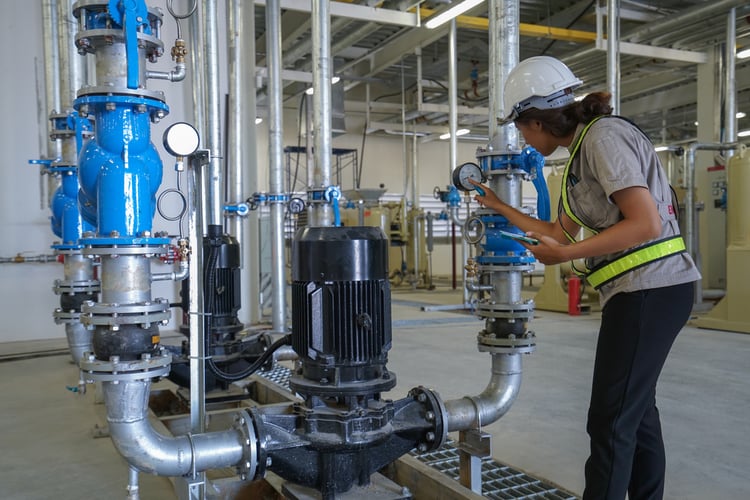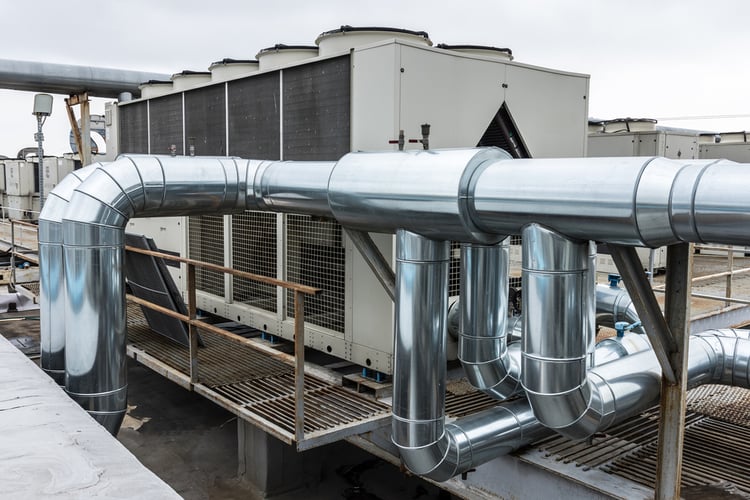New Jersey’s Grant Program for HVAC Upgrades: What You Need to Know

In October 2021, the New Jersey Board of Public Utilities unveiled the Schools and Small Business Energy Efficiency Stimulus Program (SSB). There is a total grant fund of $180 million for these two types of electricity consumers, and 75% of the budget goes to underserved communities. In general, three types of upgrades are eligible for this benefit:
- HVAC upgrades that improve ventilation and energy efficiency
- Replacing non-compliant plumbing fixtures
- Upgrading appliances that are not compliant with ENERGY STAR
The SSB is divided into two subprograms, one for HVAC upgrades and the other for plumbing and appliance upgrades. Since energy consumption and air quality are largely dependent on HVAC operation, this subprogram gets a budget of $135 million. Of this amount, schools and small businesses in underserved communities have access to $101.25 million.
Get an energy efficient HVAC design for your next construction project.
The following table summarizes how the $135 million budget is split among the two types of eligible participants, inside and outside of underserved communities:
|
Type of Energy Consumer |
Underserved Communities |
Not in Underserved Community |
|
Boards of Education |
$75,937,500 |
$25,312,500 |
|
Small businesses |
$25,312,500 |
$8,437,500 |
The maximum incentive is $5 million per board of education, and $500,000 per small business. Any grants received for plumbing and appliance upgrades also count towards this limit.
Here we will review the two pathways to obtain a grant from the HVAC subprogram, which is officially called the School and Small Business Ventilation and Energy Efficiency Verification and Repair Program (SSB-VEEVR):
- HVAC Assessment and Maintenance Pathway
- HVAC Assessment and Replacement/New System Pathway
Note how the first step in both programs is an HVAC assessment, which determines the course of action. Depending on the results of the assessment, the grant may cover maintenance and minor upgrades for an existing installation, or new HVAC systems. Regardless of the pathway followed, all applications are reviewed by a Certified Energy Auditor.
Option 1: HVAC Assessment and Maintenance Pathway

This pathway covers maintenance and repairs, as you might guess from its name, but also small upgrades that don’t include new HVAC units. The project covers your entire HVAC system, except for components that don’t have an impact on ventilation, and it includes the installation of carbon dioxide monitors.
If your building gets a grant for the HVAC Assessment and Maintenance Pathway, you must meet the following technical requirements. Keep in mind that all these upgrades can be covered by the grant, up to 75% of total costs:
- Your HVAC systems must use filters with at least a MERV 13 rating. When this is not possible, you must use the highest possible rating that is compatible with your equipment.
- The ventilation system must meet ANSI/ASHRAE Standard 62.1-2019: Ventilation for Acceptable Indoor Air Quality.
- If the HVAC system uses demand controlled ventilation (DCV), the carbon dioxide setpoint must be 800 ppm or less.
- HVAC coils will be inspected by qualified personnel, and any deficiencies found must be repaired.
- HVAC control sequences must be reviewed by qualified personnel to ensure adequate temperature, ventilation and humidity.
- Buildings that have been closed or unoccupied must follow the ASHRAE Building Readiness guidelines when reopening.
Ultraviolet germicidal irradiation (UVGI) is not mandatory, but the grant covers this technology if you decide to include it. If the HVAC system uses economizer, you must get the dampers and controls inspected and fix any issues found.
Option 2: HVAC Assessment and Replacement/ New System Pathway

Some HVAC systems cannot reach the performance level required by the grant program with only maintenance and minor upgrades. If this is your case, you can qualify for the following types of HVAC projects:
- A complete system replacement
- Specific HVAC unit replacements
- A new HVAC system installation, in buildings without one
In all cases, the new HVAC system must meet the requirements of ASHRAE Standard 90.1-2016: Energy Standard for Buildings Except Low-Rise Residential Buildings. The installation must include MERV 13 filters and carbon dioxide monitors, just like in the HVAC Assessment and Maintenance Pathway. As mentioned above, the grant application cannot include boilers and any other components that don’t improve ventilation or airflow significantly.
Building owners who are approved under this pathway must also apply for the New Jersey Clean Energy Program and any incentives available from their utility company. The SSB grant covers 75% of project costs, but you can reach 100% funding by combining it with other incentives. However, you cannot get a total incentive higher than your project budget - if this happens, the unused portion of the grant goes back to the program.

Michael Tobias
Michael Tobias, the Founding Principal of NY Engineers, currently leads a team of 150+ MEP/FP engineers and has led over 4,000 projects in the US
Contact Us
Join 15,000+ Fellow Architects and Contractors
Get expert engineering tips straight to your inbox. Subscribe to the NY Engineers Blog below.

